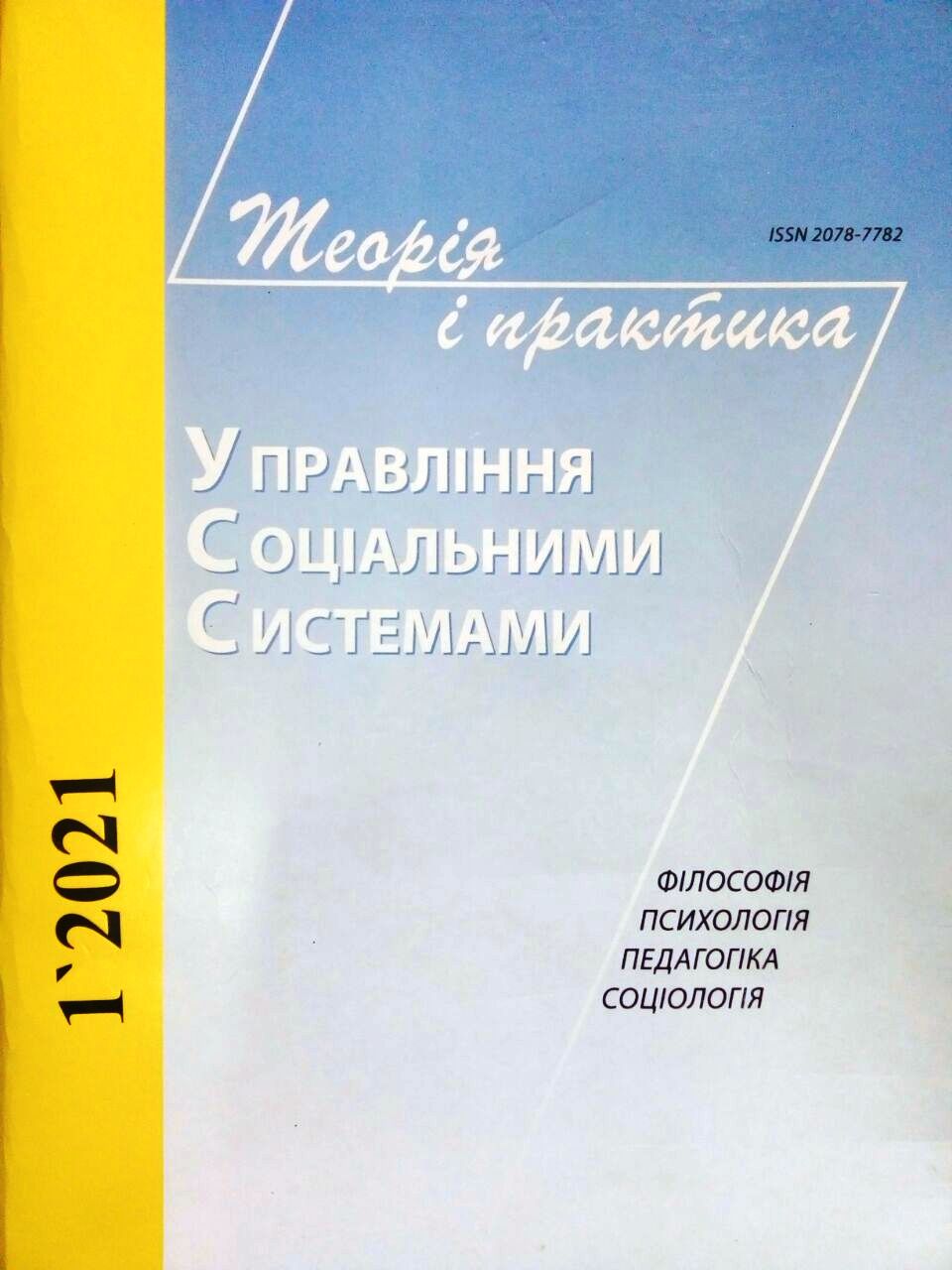МЕТОДИКА ДОСЛІДЖЕННЯ ЕМОЦІОНАЛЬНОЇ ГОТОВНОСТІ ДО УСПІШНОЇ НАВЧАЛЬНОЇ ДІЯЛЬНОСТІ У СТУДЕНТІВ ПЕРШОГО КУРСУ В ЗАКЛАДАХ ВИЩОЇ ОСВІТИ
DOI:
https://doi.org/10.20998/2078-7782.2021.1.06Ключові слова:
емоційна готовність, навчальні діяльність, компетентність, заклади вищої освіти, студенти перших курсів.Анотація
Досліджено емоційну складову професійної компетентності майбутніх фахівців. Зосереджено увагу на рівні емоційної готовності студентів перших курсів до успішної навчальної діяльності у закладах вищої освіти. Описано методики, що дозволяють виявити рівні навчальної мотивації, інтересу та емоційних станів у студентів перших курсів закладів вищої освіти до успішної навчальної діяльності. За результатами дослідження сформовані висновки щодо значущості емоцій для студентів перших курсів під час навчання у закладах вищої освіти.
Посилання
1. Draft Strategy for the Development of Higher Education of Ukraine for 2021–2031, prepared pursuant to the Decree of the President of Ukraine Volodymyr Zelensky, available at: https://mon.gov.ua/storage/app/media/rizne/2020/09/25/rozvitku–vishchoi–osviti–v–ukraini–02–10–2020.pdf
2. Berezin, F. B. (1988), “Adaptation and maladaptation of man”,L .: Limbus, p. 430
3. Berezovyn, N. O. (2001), “Adaptation of students to life in higher education”,M.:Agraf,p. 321
4. Boyko, I. I. (1999), “Psychological adaptation of adolescents to new learning conditions”, K .: “NPU”, p. 30
5. Burlachuk, L. F. (1997), “Introduction to projective psychology”, Kiev: Nika-Center, p. 128
6. Gura, T.V. (2020), “Peculiarities of training of medical specialists in providing palliative care in Ukraine during the pandemic”, “Performance of competitive economics (edition 7): Curegere lucrări științifice Conferinței Științifice Internaționale de September 25–25”, Chișinău: Impressum, p. 167–175
7. Klimchuk, V. A. (2016), “Practical psychology, or How to choose the key to anyperson”, Kharkiv: Book Club, p. 416
8. Miklyaeva, A. V. (2004), “Application of the projective method “School of animals” in the work of a school psychologist”, Minsk: Psychological service, no. 3, pp. 78–76
9. Romanovsky, O. G. (2018), “Innovative way of organizing information in the educational process of higher school”, “Information Technologies and Learning Tools”, vol. 64, no 2, pp.185– 196
10. Selye G. (1979), “Stress without distress”, M.: Progress, p.123
11. Slobodchikov, V. I., Isaev, E. I. (2000), “Fundamentals of psychological anthropology. Psychology of human development”, Moscow: School Press
12. Smirnov, B. A., Dolgopalov, E. V. “Psychology of activity in extremesituations”, H .: izd-vo: Humanitarian Center, p. 276
13. Tarabrina, N. V.(2007), “Practical guide to the psychology of post-traumatic stress”, “Theory and methods / under the general editorship of Tarabrina, N. V.”, M.: Publishing House: Kogito–Center, pp. 12–13
14. Turevskaya, E. I. “Agepsychology”, available at: http://www.tula.net/tgpu/resources/turevskaya/index.htm
15. Cherkashin, A (2018), “Psychological and pedagogical conditions for the formation of personal maturity in students”, “Theory and practice of management of social systems: a quarterly scientific-practical journal”, Kharkiv: NTU “KhPI”, no. 3, pp. 86–100
16. American Psychiatric Association. Diagnostic and Statistical Manual of Mental Disorders (english). – Fifth. –Arlington(2013), VA.: American PsychiatricPublishing, pp. 271–280

##submission.downloads##
Опубліковано
Номер
Розділ
Ліцензія
Авторське право (c) 2021 Ірина Хавіна, Юлія Чебакова

Ця робота ліцензується відповідно до Creative Commons Attribution-NonCommercial-NoDerivatives 4.0 International License.
Автори, які публікуються у цьому журналі, погоджуються з наступними умовами:- Автори залишають за собою право на авторство своєї роботи та передають журналу право першої публікації цієї роботи на умовах ліцензії Creative Commons Attribution License, котра дозволяє іншим особам вільно розповсюджувати опубліковану роботу з обов'язковим посиланням на авторів оригінальної роботи та першу публікацію роботи у цьому журналі.Автори, які публікуються у цьому журналі, погоджуються з наступними умовами:
